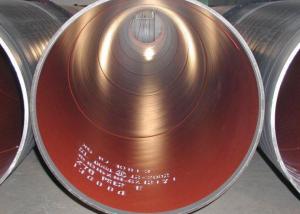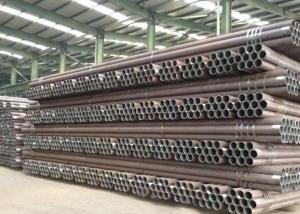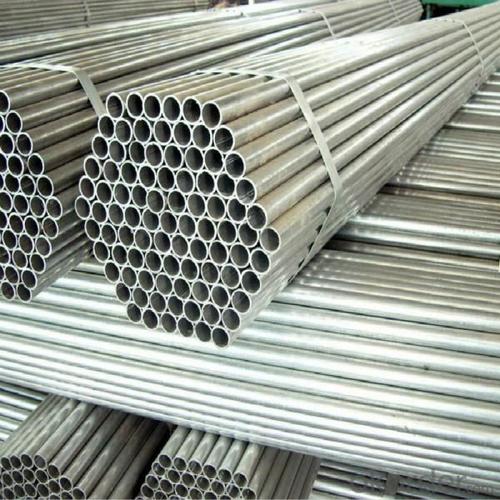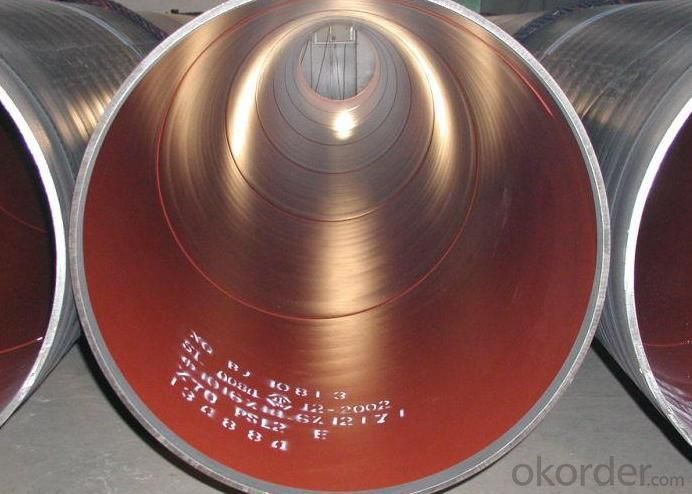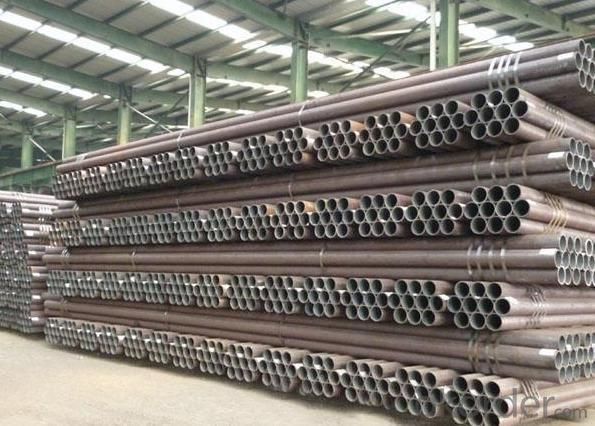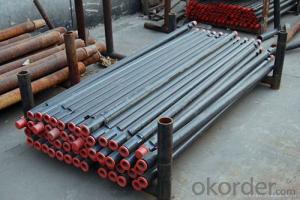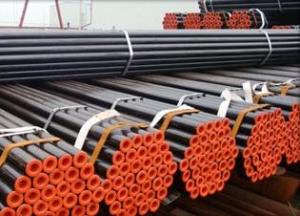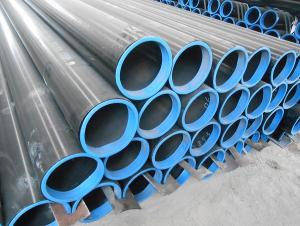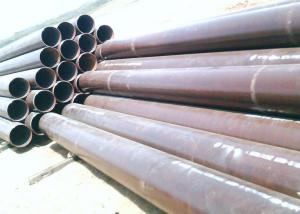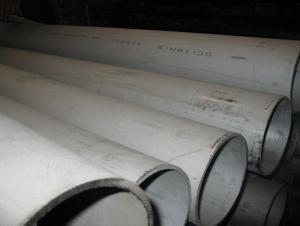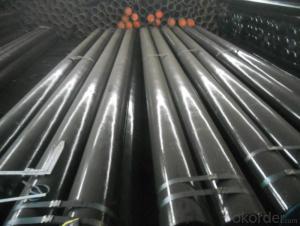Hot-rolled seamless steel tubes for hydraulic pillar service
- Loading Port:
- Qingdao Port
- Payment Terms:
- TT or LC
- Min Order Qty:
- 50MT m.t.
- Supply Capability:
- 5000 Tons Per Month m.t./month
OKorder Service Pledge
OKorder Financial Service
You Might Also Like
Best price of Hot-rolled seamless steel tubes for hydraulic pillar service
Specifications of Hot-rolled seamless steel tubes for hydraulic pillar service
1) OD: 1/2''---24'' WT : SCH5 ------SXH XXS
2) shortest time delivery
3)API and ISO
4) IN STOCK
|
Product Description |
Seamless Steel Pipe | ||
|
| |||
|
Chinese Standard |
American Standard |
German Standard | |
|
10# |
A53-A |
St37 |
DIN1626 |
|
A106-A |
St37-2 |
DIN17175 | |
|
A179-C |
St35-8 |
DIN17175 | |
|
20# |
ASTM A106-B |
St45-8 |
DIN17175 |
|
ASTM A53-B |
St42-2 |
DIN1626 | |
|
ASTM 178-C |
St45-4 |
DIN1629/4 | |
|
45# |
ASTM A 1045 |
CK45 |
|
|
16Mn |
A210-C |
St52 |
DIN1629/3 |
|
St52.4 |
DIN1629/4 | ||
|
37Mn5 |
J55 | ||
|
OD |
20mm--377mm; 1/2’’-20’’ | ||
|
WT |
2mm--80mm; SCH40-XXS | ||
|
Packing |
Black paint or varnish ,plastic caps with the both ends | ||
Picturers of Hot-rolled seamless steel tubes for hydraulic pillar service
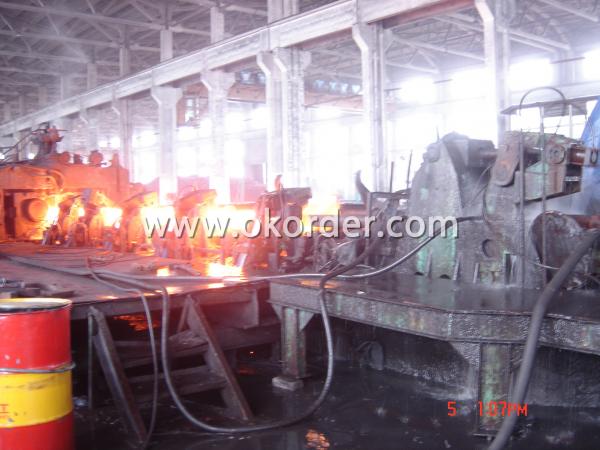
Advanced manufacturering equipment with professional team to ensure good quality.
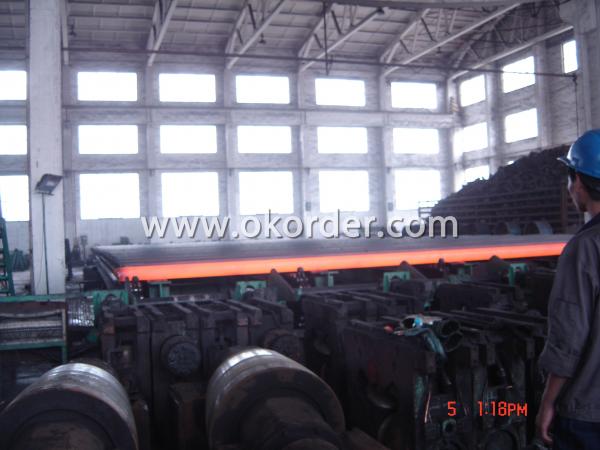
Serious quality check to enusre 100% good quality.
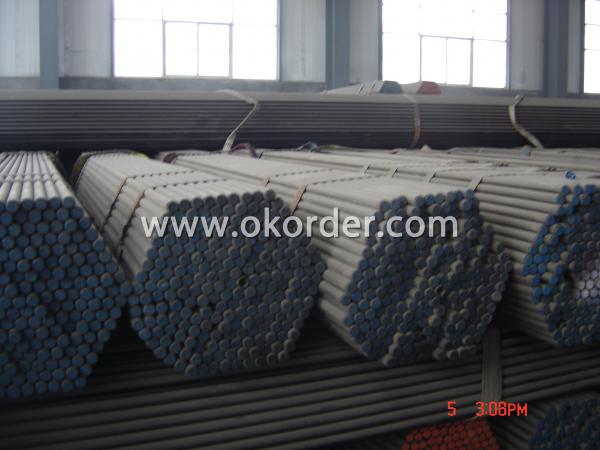
Available stock,in good condition for sale.
Welcome to order from us for Hot-rolled seamless steel tubes for hydraulic pillar service.
- Q: Can steel pipes be used for marine applications?
- Yes, steel pipes can be used for marine applications. Steel pipes have excellent strength and corrosion resistance, making them suitable for various marine environments. They are commonly used in shipbuilding, offshore structures, and underwater pipelines due to their durability and ability to withstand harsh conditions in saltwater.
- Q: How do you solder purple copper plate and steel tube?
- When the copper pipe and the size is not too large, such as 10 mm below the pipe welding, brazing is suggested, with brass solder, such as Wei Odin 201 solder, with supporting solder paste, with a neutral flame welding, the copper plate is heated to about 800 degrees, and then use the solder with 201 Wei Odin 201-F in solder welding, welding wire with melt molding.
- Q: How are steel pipes installed underground?
- Steel pipes are installed underground through a process called trenching, where a trench is dug to the desired depth and length. The steel pipes are then placed in the trench and secured using various techniques such as welding or threading. The trench is then backfilled, ensuring proper compaction around the pipes to provide stability and prevent movement.
- Q: What is the difference between black and galvanized steel pipes?
- The main difference between black and galvanized steel pipes lies in their coating. Black steel pipes are untreated and have a dark, uncoated appearance, while galvanized steel pipes are coated with a layer of zinc to prevent corrosion. This zinc coating on galvanized pipes helps protect against rust and extends their lifespan, making them suitable for outdoor and exposed applications. Black steel pipes, on the other hand, are typically used for indoor applications and are often painted or coated after installation to prevent rusting.
- Q: What are the common applications of steel pipes in industrial settings?
- Steel pipes are commonly used in industrial settings for various applications such as transporting fluids and gases, providing structural support in construction projects, conveying materials in manufacturing processes, and facilitating the distribution of water, oil, and gas in pipelines.
- Q: Seamless steel tube with the tube with what is the difference?
- Of course, the market also has some use overall heating after drawing steel pipe joints or mandrel rolling seamless steel pipe, mainly in small size, only in the shape of this kind of pipe belongs to the seamless tube, it is not very good, pay attention to oh!!
- Q: How do steel pipes differ from other types of pipes?
- Steel pipes differ from other types of pipes in several ways. Firstly, steel pipes are incredibly durable and strong, making them suitable for carrying high-pressure fluids and gases. They have a high resistance to corrosion and can withstand extreme temperatures, making them ideal for various industrial applications. Additionally, steel pipes have a smooth interior surface, which reduces friction and allows for efficient flow of liquids or gases. They are also highly versatile, as they can be easily welded, threaded, or bent to fit specific project requirements. Overall, steel pipes are known for their strength, durability, and versatility, making them a preferred choice in many industries.
- Q: What are the different types of steel pipe supports for offshore platforms?
- There are several types of steel pipe supports commonly used for offshore platforms, including but not limited to: 1. Clamps: These are used to secure and fasten pipes to the support structure, providing stability and preventing movement. 2. Hangers: These are used to suspend pipes from the support structure, allowing for flexibility and reducing stress on the pipes. 3. Guides: These are installed to control the movement and alignment of pipes, ensuring they stay in place and prevent damage during operation. 4. Shoes: These are used to support and distribute the weight of the pipe, typically at points where the pipe intersects with the support structure. 5. Saddles: These are designed to cradle the pipe and provide support, typically used for horizontal or inclined pipes. Each type of steel pipe support serves a specific purpose in ensuring the integrity and functionality of the offshore platform's piping system.
- Q: What are the common maintenance practices for steel pipes?
- Common maintenance practices for steel pipes include regular inspections, cleaning, and corrosion prevention. Regular inspections are crucial to identify any signs of damage or wear. This can involve visual inspections, as well as non-destructive testing methods such as ultrasonic testing or magnetic particle inspection. Inspections should be carried out on a scheduled basis to ensure any issues are detected early on and can be addressed promptly. Cleaning is another important maintenance practice for steel pipes. This involves removing any dirt, debris, or scale that may accumulate both on the inside and outside of the pipes. Regular cleaning helps to prevent blockages, improve flow efficiency, and reduce the risk of corrosion. Corrosion prevention is a key aspect of maintaining steel pipes. Various methods can be employed to protect the pipes from corrosion, such as applying protective coatings, using cathodic protection systems, or implementing corrosion inhibitors. These measures help to extend the lifespan of the pipes and ensure their structural integrity over time. Other maintenance practices may include repairing or replacing damaged sections of the pipes, maintaining proper insulation to prevent heat loss or gain, and monitoring the pipes for any signs of leakage or pressure drops. Overall, regular inspections, cleaning, and corrosion prevention are essential maintenance practices for steel pipes. By implementing these practices, the lifespan of the pipes can be prolonged, and potential issues can be identified and addressed before they cause significant damage or disruptions.
- Q: What is the maximum operating temperature for steel pipes?
- The maximum operating temperature for steel pipes can vary depending on the grade of steel used, but it is generally around 1000°C (1832°F) for standard carbon steel pipes.
1. Manufacturer Overview
| Location | Henan, China |
| Year Established | 2001 |
| Annual Output Value | 800,000Tons |
| Main Markets | Europe and the United States; Canada; India; South etc. |
| Company Certifications | API 5L; API 5CT; GB/T19001-2000 idt ISO9001:2000 |
2. Manufacturer Certificates
| a) Certification Name | |
| Range | |
| Reference | |
| Validity Period |
3. Manufacturer Capability
| a) Trade Capacity | |
| Nearest Port | Qingdao; Lianyungang |
| Export Percentage | 50% - 60% |
| No.of Employees in Trade Department | 1000-1100 People |
| Language Spoken: | English; Chinese; Spanish |
| b) Factory Information | |
| Factory Size: | Above 423,000 square meters |
| No. of Production Lines | Above 10 |
| Contract Manufacturing | OEM Service Offered; Design Service Offered |
| Product Price Range | Average |
Send your message to us
Hot-rolled seamless steel tubes for hydraulic pillar service
- Loading Port:
- Qingdao Port
- Payment Terms:
- TT or LC
- Min Order Qty:
- 50MT m.t.
- Supply Capability:
- 5000 Tons Per Month m.t./month
OKorder Service Pledge
OKorder Financial Service
Similar products
Hot products
Hot Searches
Related keywords

